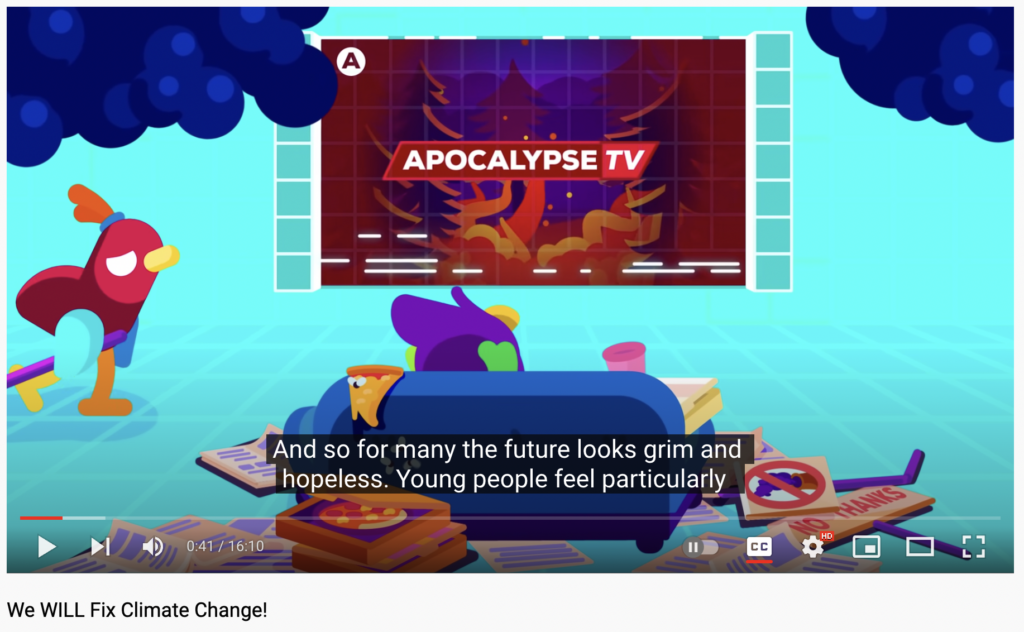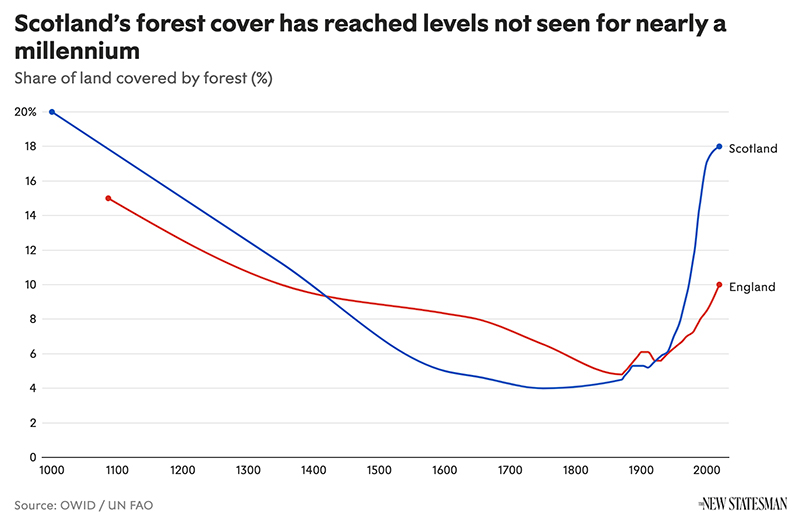Volcanoes are erupting in The Philippines, but on-fire Australia received some welcome rain. The Iran war cries have been called off and The Donald’s military powers are about to be hamstrung by the Senate. Meanwhile, his impeachment trial is starting, and we’re all on Twitter for a front-row seat.
What Could Go Right? “A gift for Indonesian women”
Massive protections against sexual abuse pass in Indonesia. Plus, geothermal energy, cancer-preventing vaccines, and more
This is our weekly newsletter, What Could Go Right? Sign up here to receive it in your inbox every Thursday at 6am ET. You can read past issues here.
“A gift for all Indonesian women”: Indonesia passes massive sexual violence law
Ten years in the making, last week Indonesia passed a momentous bill into law that protects victims of sexual violence and abuse in multiple new ways. Under it, non-physical sexual harassment, forced marriage and sterilization, the distribution of non-consensual sexual content, marital rape, and other forms of abuse are now crimes for the first time. The law also recognizes men as possible victims of sexual violence and abuse.
Outside of punishment terms—prison time of nine years for forced marriage, including child marriage, for instance—the law requires assailants to pay restitution to their victims and for counseling to be available to those harmed. It also contains crucial changes to submission of evidence in criminal cases. Plaintiffs used to have to submit two items of evidence for their case to be heard. Now, one item of evidence, in addition to victim testimony, is considered acceptable, and what counts as evidence has broadened to include things like a statement from a psychologist. The law also obligates Indonesian police to register and investigate any reports of sexual abuse.
First introduced by the National Commission on Violence Against Women in 2012, the proposal’s progress stalled amid pushback from conservative groups but was accelerated in recent years by the #MeToo movement and viral social media discussions of high-profile cases.
Indonesian Parliament’s House Speaker Puan Maharani called it “a gift for all Indonesian women.”
Today in “We Are Not Doomed”
One of the most unpopular topics this newsletter covers—judging by the unsubscribe rate whenever we talk about it—is the idea that climate change will not pose an existential risk to the planet. That’s not the same as saying everything is fine. Climate change is an extremely serious issue, without a doubt, and you should probably go turn down your thermostat right this minute. (Slava Ukraini!) But the odds that our future is an uninhabitable earth are shrinking. Two newsletter editions ago, we mentioned that we see the narrative around climate change beginning to change as governmental and corporate appetites shift, technology progresses, money is invested, and public attention on the issue grows. The mountain in front of us remains quite tall indeed, but thinking it unscalable does about as much good for getting us to the top as pretending it’s not there.

If you find yourself on the “despairing” side of the fence, we suggest this video from German YouTube channel Kurzgesagt, sent to us by one of our readers, Michelle. Enjoy while futuristic birds explain why “We WILL Fix Climate Change,” as the title says. If you don’t have 15 minutes to spare, here’s science influencer Hank Green explaining why now is not the time to become hopeless about climate change in just two. (Click the first link for actual educational purposes; the second is more for laughs.)
Geothermal energy is an often overlooked climate change solution, although places like Iceland already use it in spades. It is a practically unlimited heat and electricity source that creates far fewer greenhouse gas emissions than burning fossil fuels. The problem is that setting up the necessary drill sites is expensive. But what if we could simply repurpose our old, abandoned oil and gas wells to drill for geothermal energy instead? The United States Department of Energy is about to spend $8.4 million trying to do so in a new pilot project. If it succeeds, we may have found a sensible, easy career transition for oil and gas workers, too.
Converting those wells to produce geothermal energy could also make rural charging for electric vehicles (EV) possible. Right now, EVs do have their limitations. A standard one can go for 200-300 miles without recharging, which means you couldn’t even make it across New Mexico without being stranded somewhere near Silver City. Their range is improving, however: Tesla’s Model S can go 400 miles, and a new one from Mercedes-Benz, Vision EQXX, just went for a 626-mile spin across Europe without recharging.

Count on Mercedes to make EVs sexy. Vision EQXX’s route began in Germany, went through the Swiss Alps and northern Italy, and ended in France. | Photo: Mercedes-Benz
One knock-on effect of Russia’s war in Ukraine that we’re not sure anyone expected: the electric vehicle market is hot, hot, hot. It looks like no one in Britain wants to pay for gas anymore, and who can blame them—more electric cars were bought there last month than in all of 2019.
Before we finish the climate section, we’ll knock one back for the Irish, whose grid can now produce 75% of its electricity from renewable energy sources at any one time. They started from 50% in 2011 and are now aiming for 95% by 2030. And we’ll tip our hats to the Canadian environmental activists who ensured that Quebec became the first jurisdiction in the world to ban oil and gas development.
Before we go
Scientists are up to their usual life-altering shenanigans. We are on our way to designing vaccines that could prevent cancer. And an “exoskeleton” wheelchair allows a disabled person to get up and walk, cook, play some sports, and more.
Yesterday we published a new What Could Go Right? podcast episode, on Ukraine, with Anne-Marie Slaughter. Find a short excerpt below on how the world is moving toward peace as a norm. In the episode, among many other facets to the conflict, we also discuss the problem with framing Ukraine as the frontline of a battle between democracy and autocracy, a framing we ourselves have been influenced by. Listen to the full episode here.
Below in the links section, the first Covid breath test has been approved, India has nearly wiped out extreme poverty, and more.

The last time Scotland’s forests were this large, the Scots were ruled by Alexander The Fierce and Vikings were a real concern. Forested land now makes up 18% of Scotland. A century ago it was only 6%. The new target? 21% forest by 2032.
The World Post-Putin | S2 Ep. 4

The Russian invasion of Ukraine has been framed as a global inflection point. It may or may not be in actuality, but it is certainly a moment that challenges our assumptions of how we view the current world order and opens questions about what the next one would best look like. Anne-Marie Slaughter, CEO of New America and a Professor Emerita of Politics and International Affairs at Princeton University, joins us to discuss what is happening now in Ukraine and where the future of defense is going. | Listen to the episode
Anne-Marie Slaughter: It is really significant that over the course of the 20th century, you have two enormous norm changes. One is the idea that simply invading another country to take it over is not okay. For most of history, that was fine. That’s what you did. So to make it illegal in international law, did that stop war? Well, no. Probably nuclear weapons did more to stop war among great powers. And there have been plenty of smaller wars. But when Saddam invaded Kuwait in 1991, the world lined up. When the US wanted to invade Iraq, the United Nations would not bless it. There was a tremendous amount of opposition, and people are right to see the similarity there with what Putin is doing. It’s not identical, but there are certainly similarities. And then you see [the response to Ukraine] today. That’s a huge change. And we do need to keep pushing on that as a norm-governing nation states.
[The other change] is the human rights movement and the movement to hold individuals accountable for war crimes, which of course happened after World War II. Many people said it was victor’s justice. Then you get the International Criminal Tribunal for the former Yugoslavia. And for Rwanda, the International Criminal Court. Those things are riddled with power politics. But they are actual progress.
You can even think: the Holocaust is 6 million people. Srebrenica is 7,000 people. Bucha is 300 people, and we are responding in the ways we should respond. The key, however, is to be responding when children and families and people who do not look like us—and by “us” right now, I’m thinking of white European Americans—are killed. I think we are going to move in that direction. But until we can do that, you will always have that progress tainted by—more than tainted, undermined and corrupted by—the claim that it’s only for some people.
Listen to the full episode here. Read the full transcript here.
Progress, Please
(Found good news? Tweet at us @progressntwrk or email.)
Other good stuff in the news
United States:
- The Kansas town that decided to go 100% green—in 2007 | Reasons to Be Cheerful
- A bill to protect firefighters from toxic ‘forever chemicals’ will be introduced next week | The Hill
- The Yurok Tribe is set to return California condors to the skies | The Guardian
- New York Public Library makes banned books available for free | NPR
- A new law will ban the sale of ‘ghost guns’ in Illinois | CBS News
- The FDA authorized the first Covid-19 breath test | NBC News
- RBG and Sandra Day O’Connor statues will soon be placed in the Capitol | The 19th
International:
- India has almost wiped out extreme poverty | Hindustan Times
- Concrete is awful for the planet. Clever chemistry can help | Wired
- New worldwide map highlights LGBTQ-owned businesses | NBC News
- The discovery of a bacteria linked to prostate cancer is being hailed as a potential breakthrough | The Guardian
- Rewilding map showcases nature-led restoration | Mongabay
- This refugee camp in the Sahara is recycling trash into new products | Fast Company
- Turkish women are fighting in court for a free HPV vaccine against cancer | Good Good Good
- Women with electric rickshaws are combating Delhi’s toxic air—and its sexism | The Guardian
- A wildflower believed to be extinct for 40 years has been rediscovered in Ecuador | The Guardian
- The brown bear population in the Pyrenees is the highest it’s been for a century | The Guardian
- Fishing net deaths of endangered sea lions have been drastically reduced in South Australia | ABC News
- A deep-learning algorithm could detect earthquakes by filtering out city noise | MIT Technology Review
- How a town tethered to coral learned to save its reef—and itself | Grist
- LinkedIn now providing several “career break” options, including parenting and bereavement | Washington Post
TPN Member originals ![]()
- American culture is creating a generation of doomsters and gloomsters | James Pethokoukis
- America’s militarism will be its downfall | Andrew J. Bacevich
- ‘It’s about your leaf blower’ | James Fallows
- The Ukraine crisis offers a rare chance for energy and climate cooperation | Jason Bordoff and Meghan L. O’Sullivan
- Do we need a bigger defense budget? | Matthew Yglesias
- What to do when everything looks like a catastrophe? | Angela Duckworth
- Automation can make a doctor’s job easier | Ezekiel J. Emanuel and Billy Deitch
- Let’s make journalism work for those not born into an elite class | Alissa Quart
- What sports fans know about friendship | Arthur C. Brooks
- Putin’s Plan A in Ukraine has failed. We can’t let his Plan B succeed | Fareed Zakaria
- Stop asking women of color to do unpaid diversity work | Joan C. Williams
- Nails as a window into economic change | James Pethokoukis
- Is the Great Experiment over? | Yascha Mounk and Andrew Yang
Submerge yourself in our long list of the week’s progress links.
Upcoming Events
- Annual Public Policy Conference | Diane Coyle | April 22
- Bridging Across Generations | Manu Meel | April 25
- Reclaiming Love as a Force for Justice | Valarie Kaur | May 10
- Automation, Productivity, Work, and the Future | Jason Crawford & Erik Brynjolfsson | May 25
- Breakthrough Dialogue 2022: Progress Problems | Ted Nordhaus | June 22–24
Until Next Time
Touché.👇


